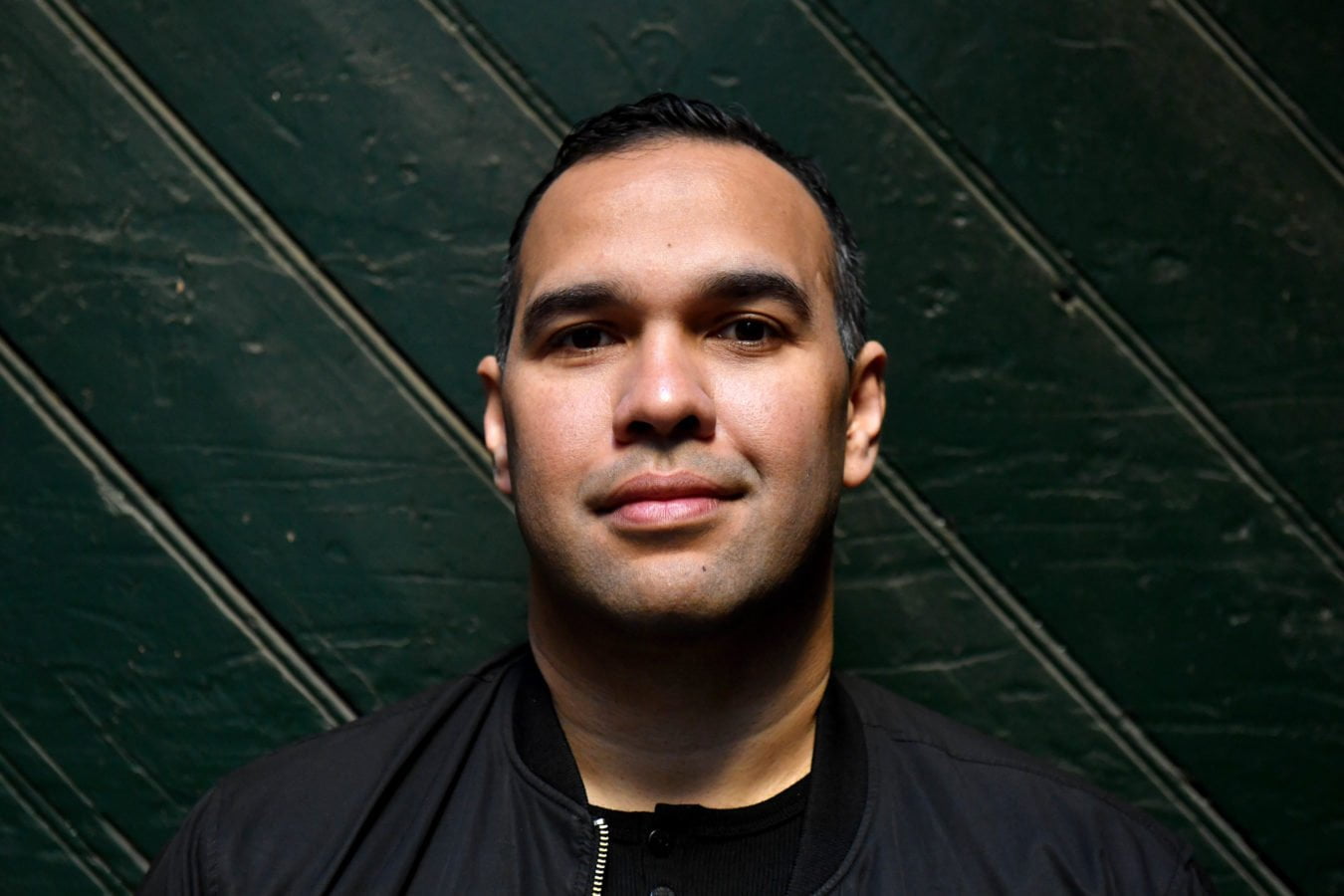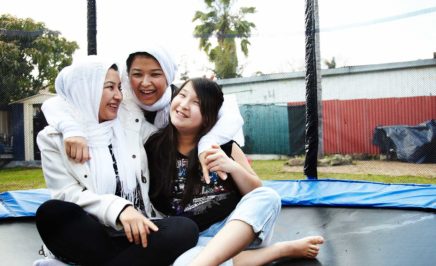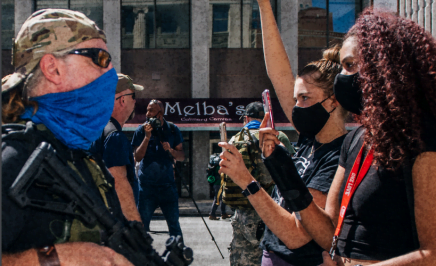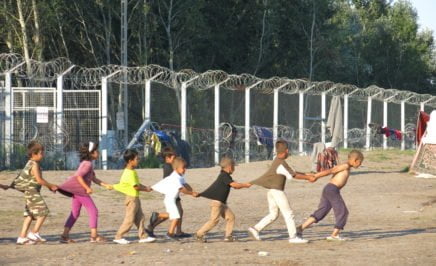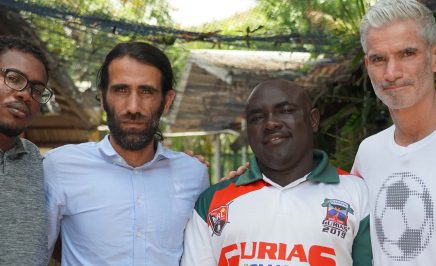By Craig Quartermaine
9 August is International Day of the World’s Indigenous Peoples. To mark this day we asked comedian, NITV journalist and Nyoongar man Craig Quartermaine to chat with us about the highs and lows of being an Indigenous comedy performer.
The life of a travelling comedian isn’t the most glamorous occupation when you’re new, but it’s remarkably similar to being a journo on the road in Australia. Dingy hotel rooms, travelling for hours and struggling to find something edible after a late shift are making me feel right at home. I’m over in the West Country of England performing previews for my first Edinburgh Show, Race Off.
I’m on a health kick at the moment, so most mornings on tour I’ll go for a jog then find the nearest park and hang off the bars. I was (until recently) completely oblivious to the fact that when a large brown man, covered in sweat, with his hoodie over his head comes up to a stranger first thing in the morning, panting and asking where the nearest playground is, it could be misinterpreted!
When you’re the only reference point in the workplace, you take on a bit of a role as cultural attaché, Black Sage or ‘Bloracle’.
The world of stand-up
People often remark that I’m incredibly brave for attempting stand-up. No, what you need for comedy is a massive ego and the arrogance to feel you should be heard. Thankfully I have those by the tonne!
But often I struggle with being an Indigenous Australian in fields where everything you say is interpreted as either gospel or a political statement. When you’re the only reference point in the workplace, you take on a bit of a role as cultural attaché, Black Sage or ‘Bloracle’. That’s true in the white-collar world and true in comedy. We need a greater presence so our jokes can be jokes and only political statements when we mean them to be.
Fittingly, this blog coincides with International Day of the World’s Indigenous Peoples and my show explores how race relations in Australia mirror racial awkwardness around the world. Back in Australia, I can easily raise a laugh by discussing the awkwardness of Australia’s relationship with its Indigenous people, but performing the same show in the UK has revealed the complete and utter ignorance of the Australian black/white dynamic – and has lead to some long pregnant pauses and wide-eyed gasps. It’s not exactly the result I’m going for and it’s gotten to the point where my gigs resemble a TED talk more than a comedy set.
The sad truth is that if I waited for horrible things to stop happening to Aboriginal people in Australia before I travelled, I’d never get out of my suburb.
Far from home
It has been hard being away from Australia ‘telling funnies’ while so many big stories are developing – not least of which has been the Elijah Doughty decision, in which the man charged with his manslaughter in Kalgoorlie received a mere three-year jail sentence. The sad truth is that if I waited for horrible things to stop happening to Aboriginal people in Australia before I travelled, I’d never get out of my suburb.
Indigenous people are a massive inconvenience to the Australian identity narrative of being hard-done-by convicts sent away for not being part of the British elite. Despite this, they managed to ‘have a go’ and make the most of the current situation: raising some sheep, winning Olympic gold medals against the odds and fighting above their weight division in World War II – essentially resembling a wet Hugh Jackman emerging from the shower. As a journalist and 35-year old Indigenous man I’m well aware this is not all there is to the story and people are genuinely shocked when I point that out on stage.
Mind you, if everyone became enlightened and less racist, a lot of my material wouldn’t work. I’d be more than happy for us to reach our cultural utopia once I’ve gotten ahead on my bills.
